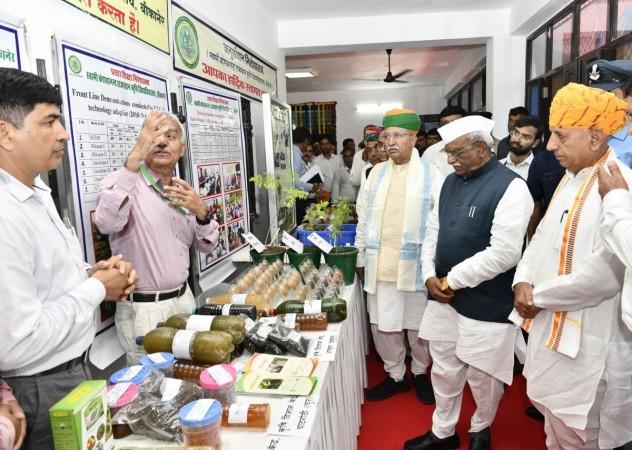
In a recent address at the Swami Keshwanand Rajasthan Agricultural University in Bikaner, Rajasthan Governor Haribhau Bagde expressed grave concerns over the rising cases of cancer. He attributed this alarming trend to the indiscriminate use of chemical fertilisers.
The Governor's remarks were made during the inaugural session of a two-day national seminar on 'Awareness Programme on Natural Farming', where he emphasised the urgent need for a shift towards natural farming methods.
Governor Bagde's concerns are rooted in the observation that the fertility of the land is being reduced due to the use of chemical fertilisers. He stated, There is a need to adopt natural farming for a clean environment. The number of incurable diseases like cancer is also increasing due to their indiscriminate use. His comments reflect a growing concern about the health and environmental impacts of chemical fertilisers, which have been widely used in agriculture for the past several decades.
The Governor's remarks hark back to a time when chemical fertilisers were not in use. He noted that their use began due to circumstances, but today, the ill-effects of these fertilisers are becoming increasingly apparent. He further stressed the need for water conservation, suggesting that efforts should be made to ensure that the water of a village stays in the village itself.

The Governor's sentiments were echoed by Union Minister for Law and Justice, Arjun Ram Meghwal, and Union Minister of State for Agriculture, Bhagirath Chaudhary. Both ministers highlighted the ill-effects of chemical farming and advocated for a return to natural farming methods.
Chaudhary, in particular, emphasised that natural farming is our oldest method which maintains the natural form of the land, adding that Chemical fertilisers and pesticides are not used in natural farming. Today, the fertility of land is getting affected due to the indiscriminate use of chemical fertilisers. To maintain human existence, we have to return to natural farming.
The concerns raised by these officials are not unfounded. The use of chemical fertilisers has been linked to a range of health and environmental problems. For instance, a report published in 2013 highlighted the issue of toxic water in China, where huge harvests were being irrigated with industrial and agricultural runoff. The report noted that the water turned black in some areas, leading to crop death and the sale of contaminated produce in markets.
The situation in Rajasthan is reminiscent of the environmental challenges faced by Egypt, as reported in 2023. The Egyptian government, under the leadership of President Abdel Fattah el-Sisi, adopted an ambitious strategy to meet the country's climate pledges and enhance economic growth.
This included a focus on green hydrogen as a solution to address climate change and diversify energy sources. However, the success of this strategy depended on strategic policy interventions, targeted investments, and technological advancements to promote sustainable water management practices and facilitate the scaling up of renewable energy capacity.
Similarly, in Bangladesh, issues related to the management of water bodies in rural areas and their effects on the marginalised population were discussed in an online discussion titled "Water Policy and Public Rights" in 2020. The discussion highlighted the importance of water as an essential resource and the need for policies that ensure its accessibility for all.

















